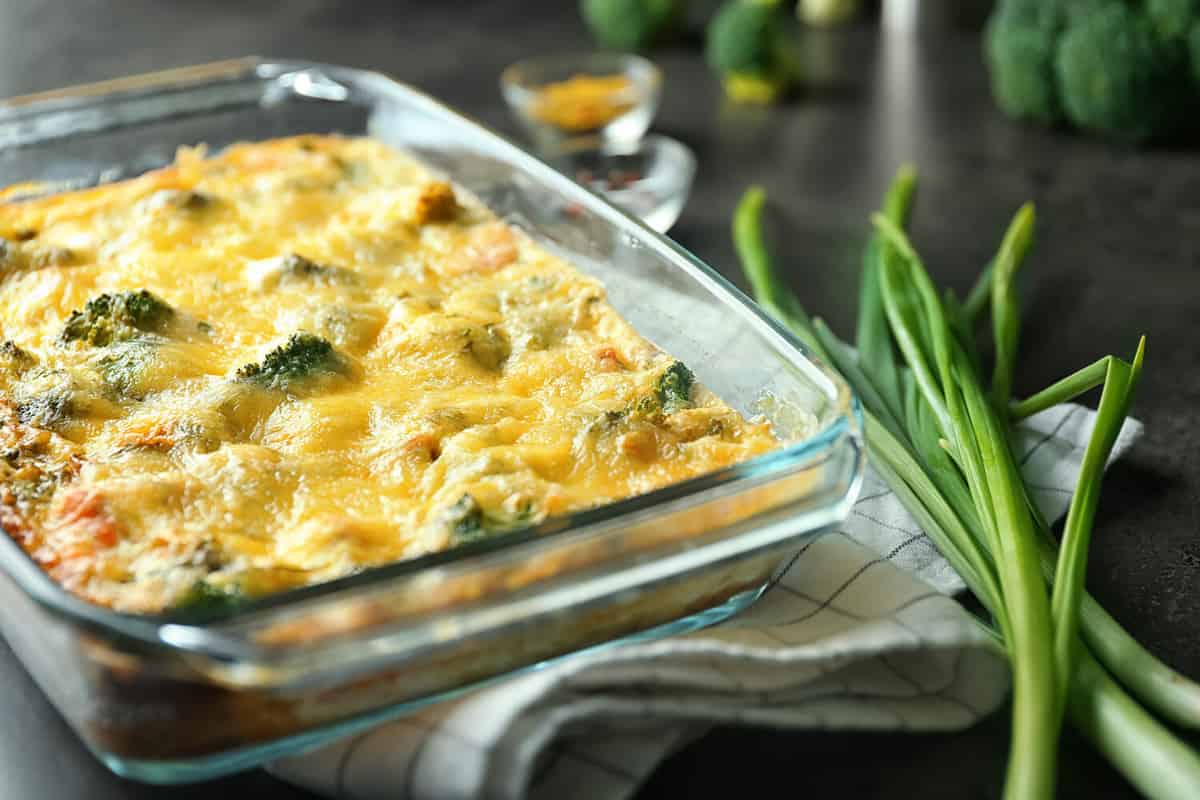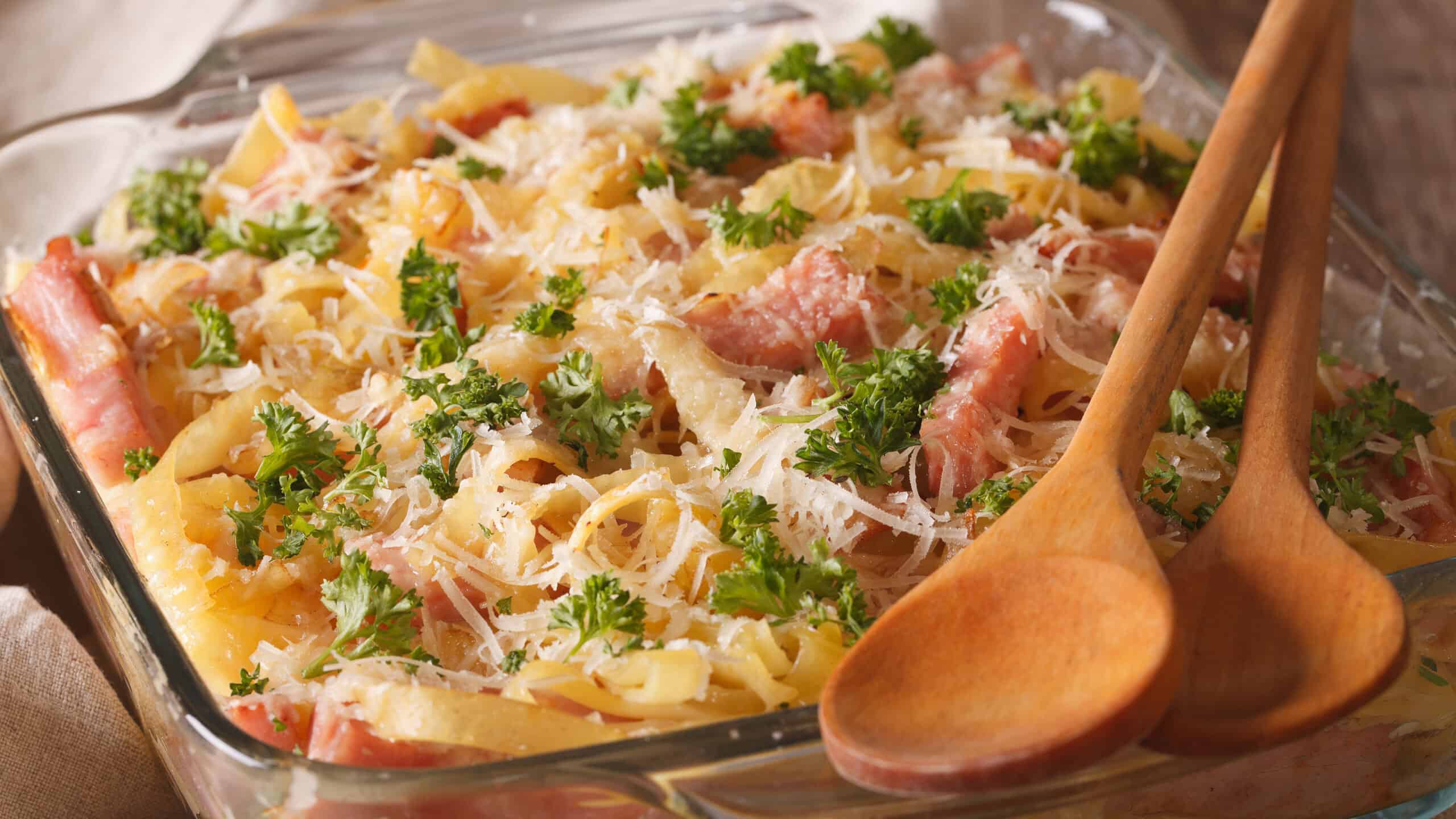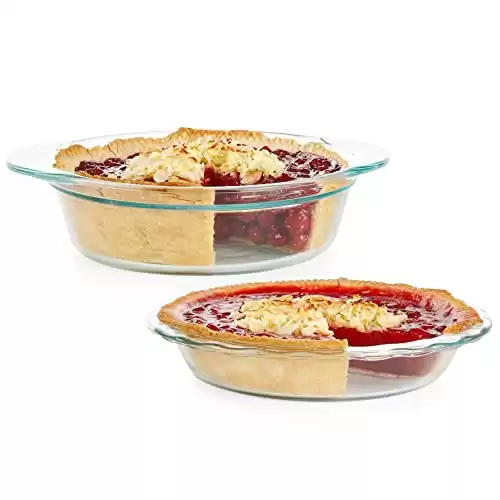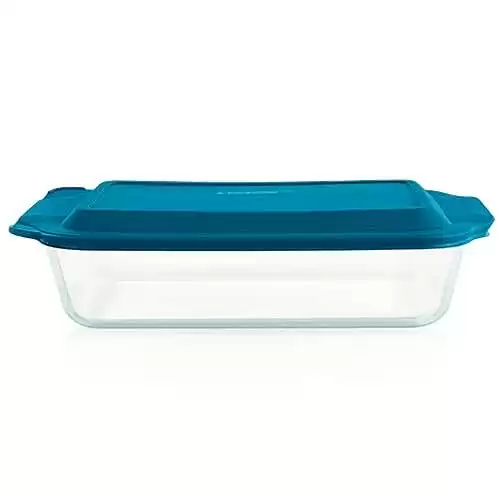With so many different kinds of cookware, how do you know which one is best for you? Well, not only do you have to pick the kind of cookware you want, but also the brand. Pyrex has been around for years and is well known for its baking dishes. Today we're going to take a deeper look at Pyrex, why their glass cookware stands out from other brands, and why you should start cooking with Pyrex.
Deep Glass Bakeware Set, Microwave, Dishwasher, Freezer and Pre-Heated Oven Safe.
Made To Resist Heat
For a long time, Pryex was made with borosilicate glass. This type of glass was unique because of its high resistance to thermal expansion and shock. Borosilicate glass was the reason people chose Pyrex over some brands. But, after years in business and doing research on the products being used, Pyrex switched to using soda lime glass. This type of glass has less thermal shock resistance, but it's stronger in mechanical strength. Pyrex found that the majority of injuries in the kitchen came from broken glass. So switching to soda lime glass was the safer yet still effective choice.

©Africa Studio/Shutterstock.com
Durable
Not only are Pyrex products durable because of their mechanical strength from the soda lime glass, but they're also durable because they resist chemical attacks. Pyrex can resist basic acids, organic solvents, salt solutions, water, and halogens. It can only be compromised by hydrofluoric acid, strong alkaline solutions, and concentrated phosphoric acid. Now, this isn't important unless you're working in a laboratory. But if it's safe for the scientists, that means it's extra safe for you and your family.
With Lid, Glass Food Container, Deep Casserole Dish, Freezer, Oven, and Microwave Safe.
Glass Is Non-Toxic
Glass is generally a safe and non-toxic material. This is especially important when it comes to what you're choosing to cook with. It has been found that certain cookware has harmful chemicals in its coating, and after normal wear and tear, it could contaminate food. If you're cooking with glass, you can ensure that it won't contaminate your food. Glass is also a non-porous material, so you don't have to worry about anything seeping into it.
The image featured at the top of this post is ©Sergii Koval/Shutterstock.com.


